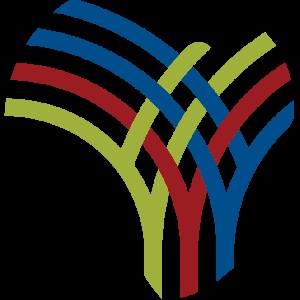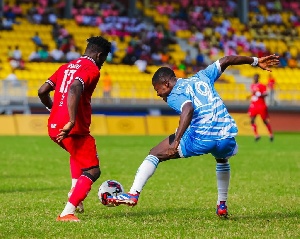Africa News of Friday, 4 April 2025
Source: www.ghanawebbers.com
Congo-Kinshasa: A Chance Encounter Leads to Critical Maternal Care in the Democratic Republic of the Congo
Chance Azina walked slowly through Goma, North Kivu Province. She is seven months pregnant and feels weighed down by the heat. Like many others, she tries to maintain normality despite ongoing violence in eastern Democratic Republic of the Congo.
Ms. Azina was unaware that urgent healthcare was crucial for her pregnancy. Without it, both she and her baby faced deadly risks. Around the corner, she met Amani, a community outreach worker at Kyeshero Christian Centre for the Light health facility. He spoke with passersby about available reproductive health services.
"When he asked about my headaches and leg pain, I felt scared," Ms. Azina told UNFPA, the United Nations sexual and reproductive health agency supporting the facility. She quickly went for a check-up and received free care from trained midwives supported by UNFPA.
Justine, one of the midwives, explained that Ms. Azina had intense headaches and leg pain but hadn’t seen a health worker since becoming pregnant. They performed tests to rule out preeclampsia risk. Antenatal care had been hard to find due to violence forcing many to flee.
In December 2024, Ms. Azina's village of Kanihi came under attack. She walked over 90 km with her four children to reach Bulengo displacement camp but was evicted when sites were dismantled in February. The family moved again with thousands of others before finding shelter with a host family in Kyeshero.
Since her husband disappeared months ago, Ms. Azina faces her fragile pregnancy alone.
Access to reproductive health services has been scarce in eastern Democratic Republic of the Congo for years. The country has one of the highest maternal death rates globally. In North and South Kivu, only three hospitals are still operating; they are overwhelmed and lack critical supplies.
Reports show fewer than half of pregnant women attend the recommended four prenatal visits. Many who do arrive late for their first visit, risking complications later on. Even fewer women recognize danger signs like being underweight or having severe headaches—indicators of life-threatening issues.
Before meeting Amani, Ms. Azina did not know her pain could endanger her life and her baby's life too.
"Many women feel they can no longer receive help after leaving camps," said Dr. Solange N. Ngane from UNFPA in North Kivu. "Our community workers play a vital role in raising awareness among vulnerable women."
UNFPA’s community-based approach identifies pregnant women and refers them to partner health facilities for prenatal consultations and family planning services.
Since February 2025, UNFPA deployed 120 midwives and 360 community workers across Goma to ensure uninterrupted services and reduce maternal deaths.
As Ms. Azina continues regular check-ups, she is more aware of risks and where to seek emergency help now.
"I thought I would have to give birth alone," she said.
"I didn't know help was still available—it was Amani who saved my life."











